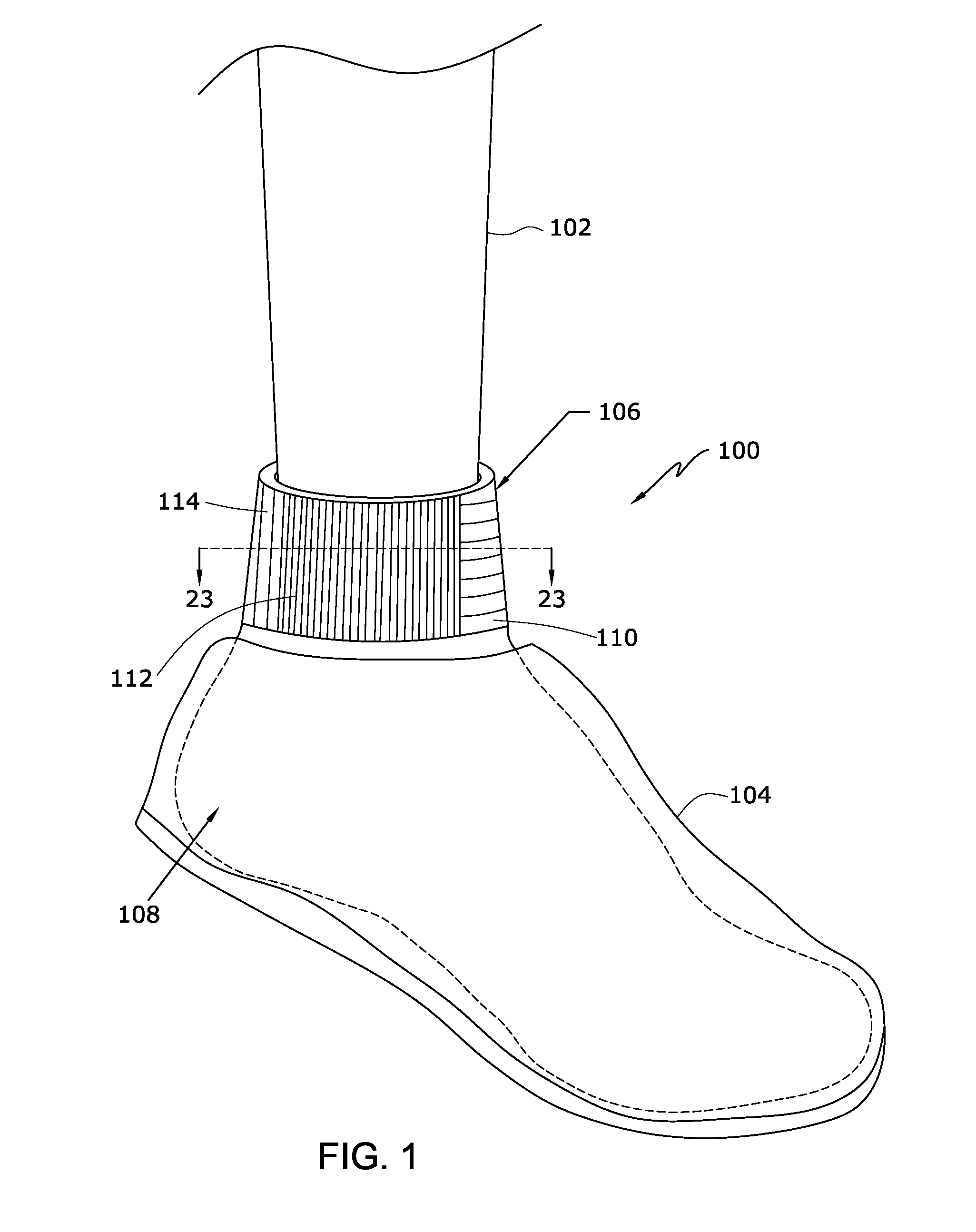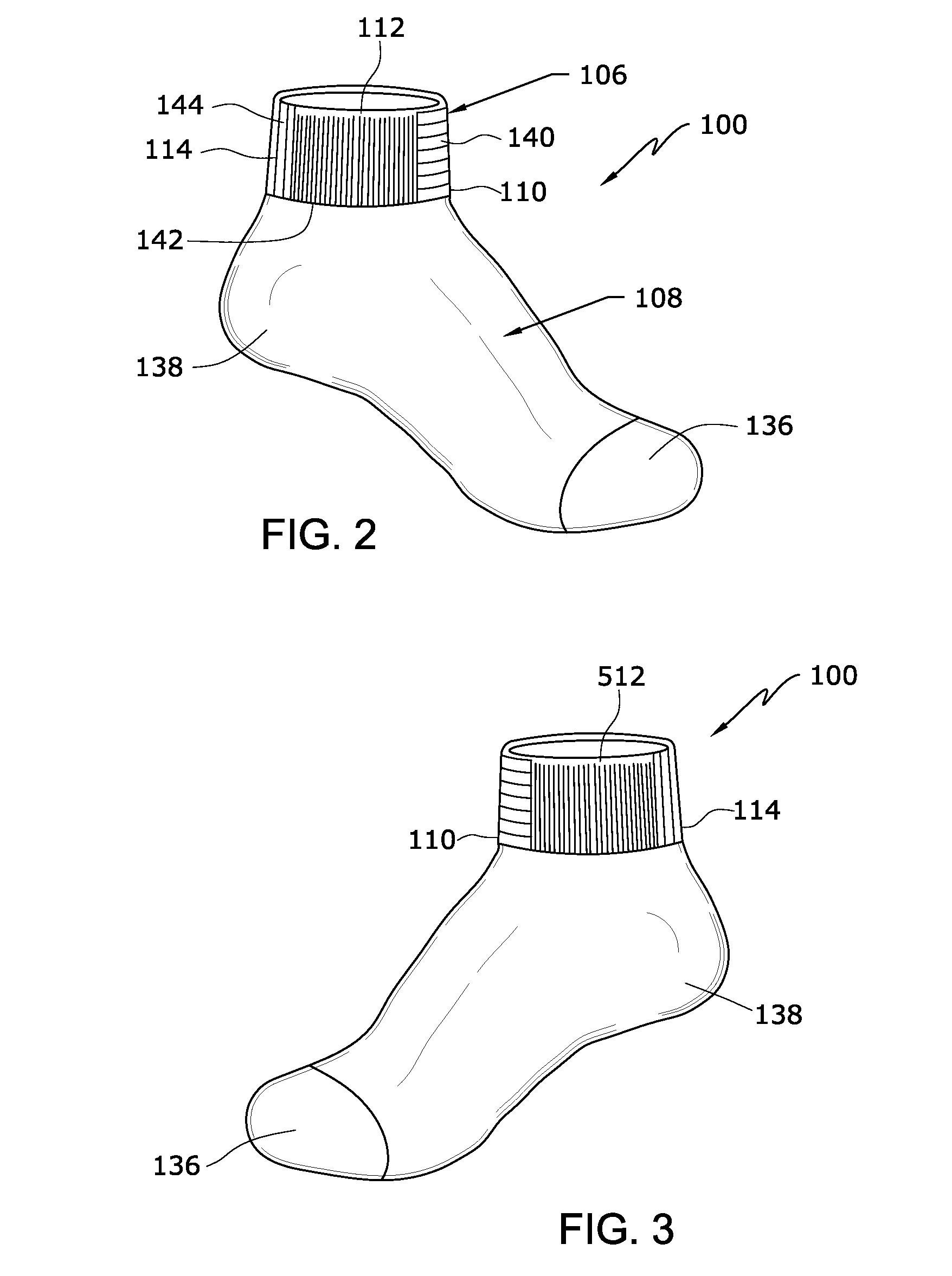Apparel with Reduced Drag Coefficient
a technology of drag coefficient and clothing, applied in the field of athletic apparel, can solve the problems of little can be done to streamline the form of an athlete to reduce drag, reduce the drag coefficient, and restrict the movement of the body, and achieve the effect of reducing drag
- Summary
- Abstract
- Description
- Claims
- Application Information
AI Technical Summary
Benefits of technology
Problems solved by technology
Method used
Image
Examples
Embodiment Construction
FIG. 1 is a schematic view of a portion of an appendage 102 of an athlete wearing an athletic garment 100 including a drag-reducing panel 106. In this embodiment, appendage 102 is a leg and athletic garment 100 is a sock. However, in other embodiments, appendage 102 may be any body part capable of being modeled as a substantially circular cylinder or sphere, for example, one or both legs, one or both arms, the head, the neck, and the like, and athletic garment 100 may be any type of garment that can encircle appendage 102, such as a wristband, headband, or sleeve. Optionally, a portion of appendage 102 and / or athletic garment 100 may be covered by an additional garment 104. In this embodiment, as appendage 102 is a leg, an optional shoe 104 is provided to cover the foot and a body portion 108 of athletic garment 100. Drag-reducing panel 106 is a cuff of the sock, configured to encircle the ankle region of appendage 102, forming an opening to provide access to body portion 108. Drag-...
PUM
 Login to View More
Login to View More Abstract
Description
Claims
Application Information
 Login to View More
Login to View More - R&D
- Intellectual Property
- Life Sciences
- Materials
- Tech Scout
- Unparalleled Data Quality
- Higher Quality Content
- 60% Fewer Hallucinations
Browse by: Latest US Patents, China's latest patents, Technical Efficacy Thesaurus, Application Domain, Technology Topic, Popular Technical Reports.
© 2025 PatSnap. All rights reserved.Legal|Privacy policy|Modern Slavery Act Transparency Statement|Sitemap|About US| Contact US: help@patsnap.com



